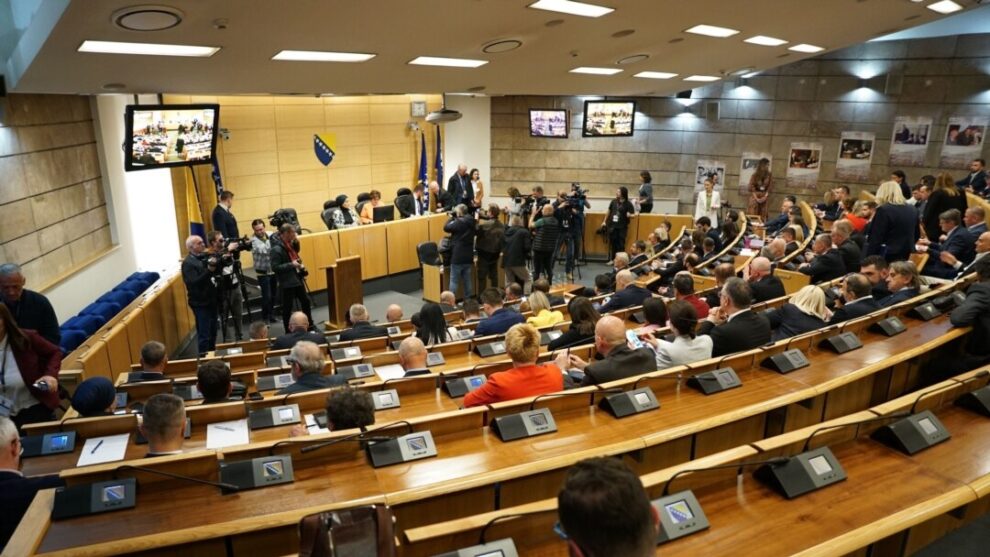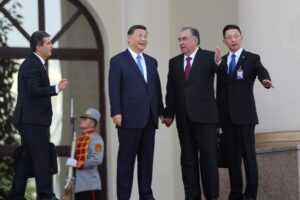Herzegovina’s House of Representatives has appointed a new government in an urgent session held on April 28, a day after the high representative of the international community imposed changes to the country’s constitution and the criminal laws.
The 16 new ministerial positions will be split among members of the Croatian Democratic Union, the Social Democratic Party, the Croatian Democratic Union 1990, and the political parties Nasa Stranka and Narod i Pravda.
Vice President Refik Lendo opposed the new government appointments, demanding his Party of Democratic Action be given a portfolio. His party organized protests outside the parliament during the vote.
Christian Schmidt, the high representative of the international community in Bosnia, on April 27 made changes to the constitution and the criminal laws of Bosnia’s entities to facilitate the formation of the new regional government and prevent election fraud.
Schmidt’s amendments to the constitution were imposed on an interim basis to help form the new regional government after a deadlock lasting almost seven months following elections in October. The changes will take effect in one year unless the parliament passes its own version of the amendments.
Schmidt, who has vast powers as the international community’s envoy to Bosnia, amended the constitution so that only two out of three federation presidency members need to support a proposed government in order to forward it to parliament.
Schmidt, who has powers to change laws and fire officials seen as obstructing the Dayton peace accords, came under criticism for changing the election law on election night in October 2022 aimed at removing gridlock in the federation government formation.
Schmidt has the powers as overseer of civilian and administrative aspects of the 26-year-old peace deal that still governs Bosnia along ethnic lines.
The changes to the criminal laws were prompted by the need to “strengthen the integrity of elections” and apply to Bosnia and Republika Srpska, the other entity within Bosnia.
These changes make it illegal to ask for or take money or any benefit, such as employment, from politicians and set the punishment for anyone found guilty of such actions at 10 years in prison and a fine.
The amendments to criminal laws also imply dismissal from a legislative, executive, other administrative or judicial body or from any service that is fully or partially financed from entity budgets for anyone found guilty of election bribery.
In addition, anyone found guilty of the offense cannot be employed in any public service for five years after being punished, pardoned, or amnestied.
The changes take effect immediately on an interim basis until they are adopted by Republika Srpska and the Bosnian federation “without amendment and with no conditions attached.”
Source : RFERL











